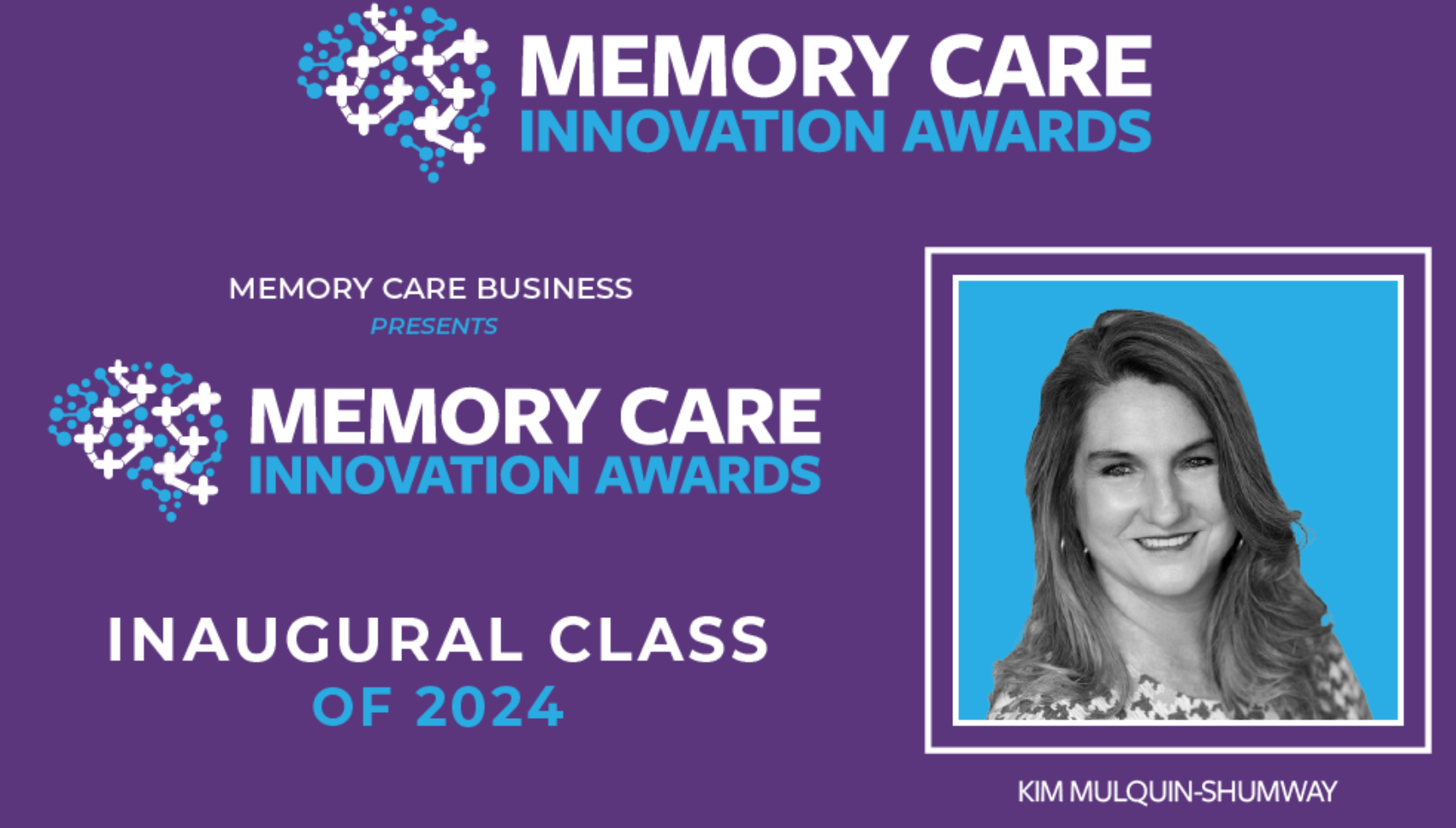Kim Mulquin-Shumway, VP of clinical compliance at Nevvon, has been named a 2024 Memory Care Innovation Award Winner.
To become a Memory Care Innovation Award winner, an individual is nominated by their peers. The candidate must be a high-performing employee who knows how to put vision into action, and serve as an advocate for those living with memory-related disorders and the committed professionals who ensure their well-being.
Mulquin-Shumway sat down with Home Health Care News to talk about what it will take to elevate memory care in the U.S., the role technology could play in that and more.
What drew you to working in memory care?
My personal experiences and professional background have uniquely shaped my interest in working in memory care. In my teens, my uncle was diagnosed with Alzheimer’s disease. I witnessed firsthand the stress and challenges my aunt went through trying to take care of him at home. Later, in my young adult years, when I was raising my children, my grandmother’s battle with dementia provided a deep, personal insight into the challenges and needs associated with memory-related health issues. These experiences fostered a profound empathy and understanding, reinforcing the need for safe, personalized, high-quality care.
Professionally, I have been a nurse for 35 years and have been involved in health care quality for over 25 years. Much of my career has been in the post-acute industry, focusing on quality improvement and education. As I worked in the long-term setting in the realm of quality improvement, it became evident that the residents and staff working in the dementia wing needed special care and training.
This blend of personal and professional experiences not only drew me to this field but also equipped me with the skills and understanding necessary to excel in caring for individuals with memory impairments.
What’s your biggest lesson learned since working in memory care?
The biggest lesson learned is the importance of personalized care. Working with residents, families and staff in memory care highlighted how each individual’s experience with memory loss is unique, requiring tailored approaches that respect their history, personality and current abilities.
My experiences have taught me about the resilience of families dealing with memory diseases and the critical support networks needed for both patients and caregivers. Providing personalized care not only improves the quality of life for those with memory conditions but also supports caregivers in delivering the most effective and empathetic care possible.
If you could change one thing with an eye toward the future of memory care, what would it be?
If I could change one thing with an eye toward the future of memory care, it would be integrating more advanced technology and data analytics into the care process.
This could include using AI-driven tools for personalized care planning, real-time monitoring systems to improve patient safety, and predictive analytics to better understand and manage the progression of cognitive decline.
Enhancing technological integration would not only improve efficiency and outcomes but also empower caregivers with better tools and insights, leading to more proactive and tailored care strategies for individuals with memory impairments.
What is the biggest obstacle to being innovative in memory care, and how do you try to overcome that obstacle?
One of the biggest obstacles to innovation in memory care is often the resistance to change and the challenge of securing funding for new initiatives. Many health care organizations are slow to adopt new technologies and methods, especially when they involve substantial shifts in traditional care models or funding.
Building strong cases for innovation through evidence-based research is crucial to overcome these hurdles. Demonstrating new approaches’ effectiveness and potential cost savings can help persuade stakeholders. Networking with industry professionals and participating in forums can provide opportunities to learn from others’ successes and failures, which can be invaluable in navigating the complexities of health care innovation.
Additionally, partnering with technology firms and academic institutions can lead to pilot programs showcasing the benefits of innovative practices. These pilot programs can serve as proof of concept, making it easier to argue for broader implementation across the care spectrum.
In a word, how would you describe the future of memory care?
Progressing
Thanks to Home Health Care News and Robert Holly, original article can be found here

